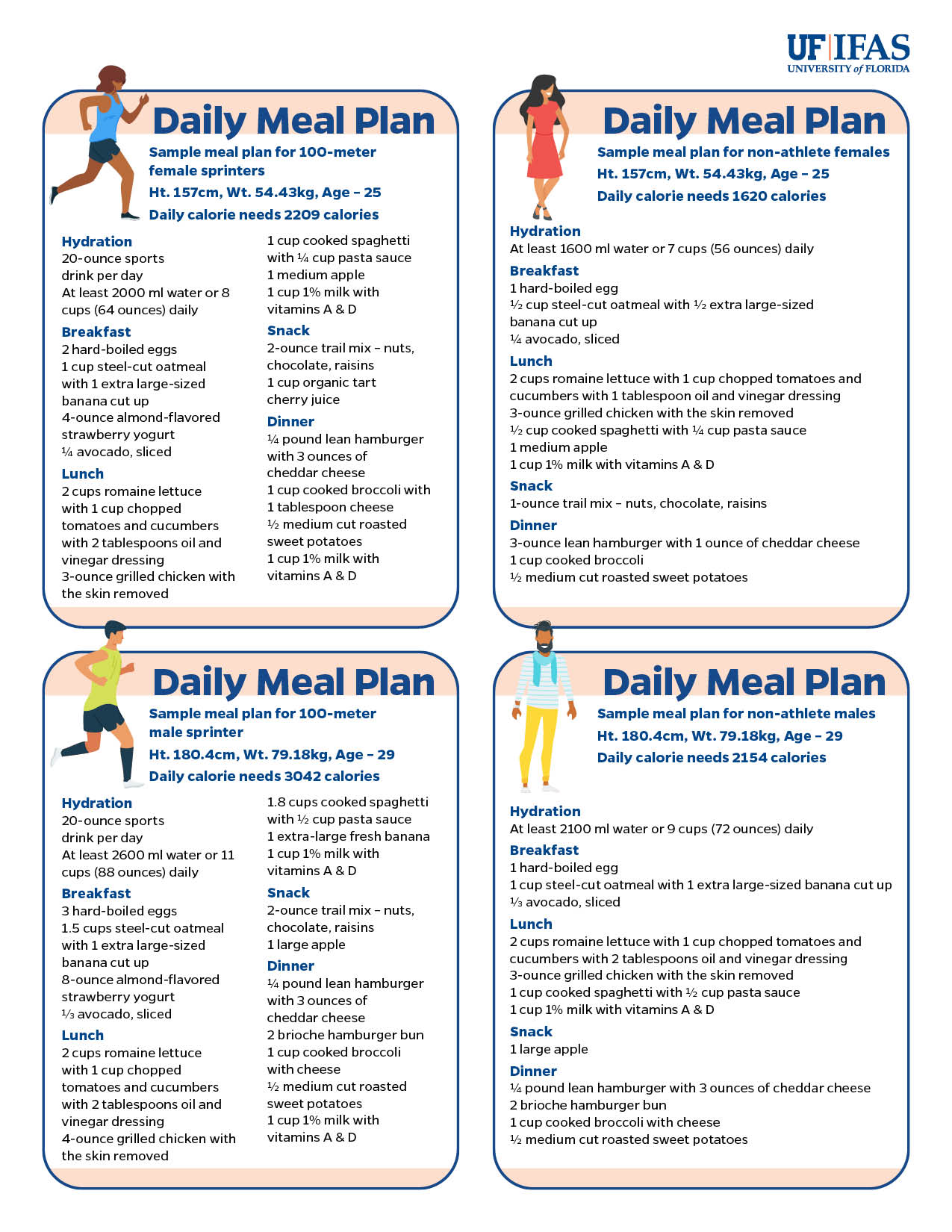Perhaps more than any other people, Olympic athletes adhere to the strictest regimens of daily exercise and diet. With the 2024 Paris Olympics starting today, a University of Florida College of Health and Human Performance (HHP) professor calculated how many calories Olympians require to sustain their rigorous workouts, and UF Institute of Food and Agricultural Sciences (UF/IFAS) nutrition experts devised sample diets to illustrate how athletes might replenish themselves.
Among the most demanding Olympic sports, calorically speaking, is the 100-meter dash, said Benjamin Gordon, HHP professor of exercise physiology.
A male 100-meter sprinter, for example, needs to consume an estimated 3,042 calories each day to make up for what he burns exercising, Gordon learned.
To reach this number, Gordon studied the three American men who competed in the race during the 2020 Tokyo Olympics: Ronnie Baker, Trayvon Bromwell and Fred Kerley, the last of whom won a silver medal for the United States with a time of 9.84 seconds. Gordon averaged the men’s height, weight and age (180.4 centimeters, 79.18 kilograms and 29, respectively) to estimate a fictional male sprinter’s Basal Metabolic Rate (BMR), the number of calories his body would require to complete basic functions. Gordon calculated a rate of 1,795 calories. He then calculated the number of calories burned during 90 minutes of sprinting practice — approximately 1,247 for a man of the fictional sprinter’s size — and combined the two numbers to reach his total.
For comparison, the average 29-year-old man of the same size needs to consume 2,154 calories a day if he engages in a moderate amount of physical activity, Gordon determined.
“Obviously these are all estimates,” he said. “There are plenty of variables that could make these numbers dramatically different. The amount of lean muscle someone has makes a huge impact, the length of practice obviously has a huge impact, and the intensity that they are exercising or practicing has a dramatic impact.”
Jeanette Andrade, an assistant professor with the UF/IFAS food science and human nutrition department, and Li-Ying Suvi Kuo, a graduate student in dietetics who is working under Andrade, used Gordon’s calculations to devise typical meal plans for the fictional sprinter and his non-athlete counterpart.

UF nutrition experts created meal plans based on how many calories Olympians — and non-athletes — might typically consume in a day. (Graphic by Tracy Bryant, UF/IFAS)